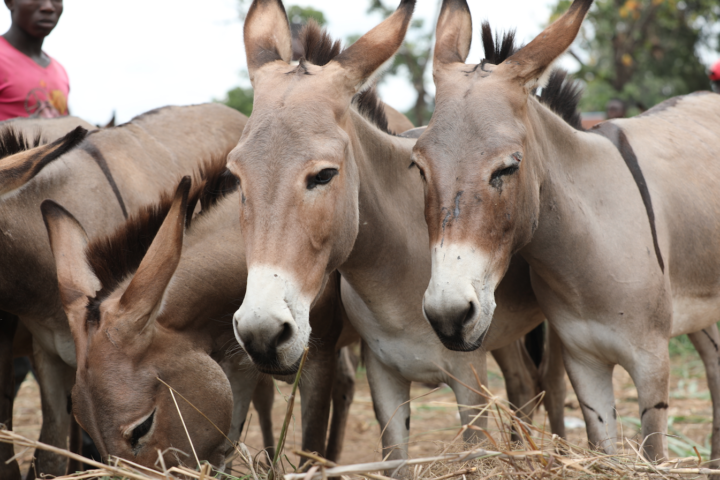In a sting that has sparked a global conversation and highlighted the bizarre undercurrents of transnational wildlife crimes, officers of the Nigeria Customs Service (NCS) have intercepted an eye-popping shipment of 10,603 donkey penises at a major port—preventing what experts call a “black market wildlife consignment” en route to China.
The seizure, made at the Apapa Port in Lagos, has thrown a spotlight on the harsh realities of wildlife trafficking, an illegal but highly lucrative trade that siphons animal parts from Africa to Asia in staggering volumes.
In this shocking case, the cargo was falsely declared as “animal hides,” but after close inspection and intelligence gathering, it was revealed that the shipment was, in fact, an illegal haul of donkey reproductive organs, packed in container units and prepared for export.
“This Isn’t a Joke — This is Organized Crime”

Customs spokesperson SC Abdullahi Maiwada, who briefed reporters in Lagos, described the seizure as “one of the most bizarre yet serious smuggling attempts we’ve ever faced.”
“The perpetrators behind this are not mere hustlers — this is a well-oiled criminal enterprise that spans multiple countries with deep funding and connections,” he said.
Donkey genitals, particularly the penises, are in high demand in parts of Asia, particularly China, where they are often used in traditional medicine and alleged aphrodisiacs.
Animal rights groups have long decried this underground economy, which has led to the mass slaughter of donkeys across Africa, pushing populations to dangerously low levels.
Anatomy of an Underground Empire
Investigations suggest that the syndicate likely sources donkeys from rural Nigerian communities, where economic hardship makes the sale of livestock — dead or alive — an attractive survival strategy. The customary value of these animals to the agrarian economy is overlooked in favor of fast cash from black market buyers.
Sources within NCS say the intercepted shipment was just the tip of the iceberg, pointing to a trans-Africa trafficking route that begins in places like northern Nigeria and extends through regional borders into international shipping routes.
“We’re dealing with international demand, local supply, and criminal middlemen who act as couriers. It’s a grim triangle that exploits both people and animals,” said a senior member of the Anti-Smuggling Unit.
A Hidden Cost to Rural Africa

While the seizure has fascinated onlookers and blown up across social media platforms under hashtags like #DonkeyTrafficking and #WildlifeBustNigeria, the seriousness of the offense cannot be overstated.
Agriculture experts warn that continued depletion of donkey populations will impact transport, farming, and rural productivity, especially in Nigeria’s northern regions where these animals are indispensable.
“A donkey can be the lifeline of a family. Selling one for parts is like trading your future for today’s meal,” said Hadiza Lawal, a livestock welfare advocate in Kano.
Yet, many rural Nigerians are simply caught in the crossfire between economic desperation and environmental exploitation. With little local enforcement and weak global deterrents, the black-market trade remains disturbingly alive.
Crackdown or Drop in the Ocean?
The Nigerian government has pledged stricter measures to stem the wildlife trade, but experts argue that stronger regional cooperation is essential to combat wildlife syndicates that operate beyond any single nation’s border.
“This seizure is significant, but unless we address the demand, more shipments will follow,” warned Dr. Innocent Akugbo, a wildlife policy analyst in Abuja.
Several arrests have been made in connection with the busted shipment, and sources within NCS confirmed that further raids and inter-agency operations are underway to unravel more nodes in the trafficking network.
Quote of the Day
“We can judge the heart of a nation by how it treats its animals.”
― Mahatma Gandhi
CONCLUSION
This case—gruesome as it sounds—serves as a wake-up call not just to Nigerian authorities, but to the international community. Wildlife crime is no longer only about ivory or rhino horns. It now includes the literal dismantling of entire species for obscure, underground markets.
